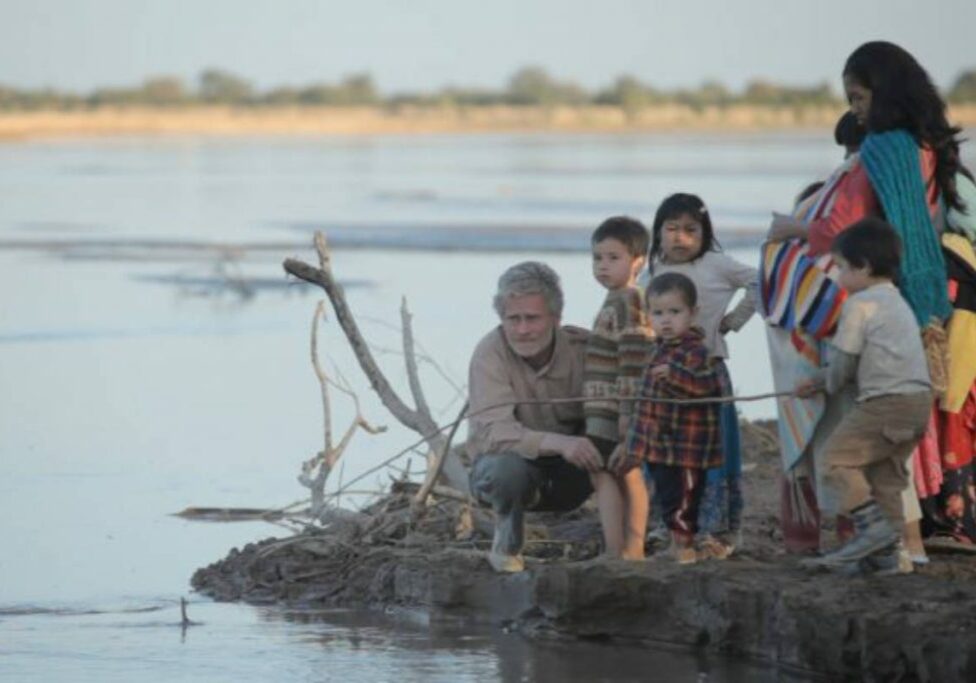
MAI presents
"El Etnografo"
The series of documentaries that we offer on Più Compagnia – the last screening is available from December 21st at Più Compagnia (free access) – is an integral part of the MAI – Museo Antropologico Immaginario multidisciplinary project curated by Valeria D’Ambrosio for Villa Romana in Florence and realized thanks to the contribution of the Fondazione CR Firenze. Being a partner of the project, Festival dei Popoli, proposes a selection of documentaries from its Archives related to the themes of the MAI in order to develop the food for thought triggered by the exhibition.
Within the MAI, various practices are confronted with the aim of decolonising thought and vision through creative languages unhinged by the objectivising distance of the scientific discipline. Contemporary art, Radical Architecture, Live Performance and Documentary Cinema are in fact called upon to reason about the role of Ethnographics & Anthropological Museums in contemporary Society. This can be made focusing on the dynamics of representation of human cultures no longer seen through an essentially Eurocentric and static filter, but trying to create real participatory models and a wide network of collaborations to tell stories of the Past, narratives of the Present and possible visions of the Future.
In response to this call, the Festival dei Popoli Archives proposes a programme of international films questioning and rethinking the concept of an Anthropological Museum, and which aim to bring together cultures and populations that every day seek to bring ancient traditions into dialogue with the demands of the contemporary world.
Last date: from 28th to 31st at Più Compagnia (click here to enter)
El etnógrafo (The Ethnografer), by Ulises Rosell (Argentina, 2008, 72’ – o.v. Spanish and local languages – English subtitles)
Thirty years ago, John Palmer left Oxford to study the Wichis, a nomadic population living in some green areas of Argentina and Bolivia. During his stays within the community, John underwent a slow but inexorable transformation: he put aside his studies and joined the community, whose language, customs and habits he learned and where he met the woman with whom he gave birth to a large and lively offspring. A curious example of “reverse colonisation”, John offers his contribution to the community by dealing with administrative and bureaucratic issues that burden the largely anaphalbeta community. In the film, we see him struggling with two problems: a multinational company has invaded the native lands and is carrying out oil surveys there; one of the heads of the family has ended up in prison because his marriage, which took place – according to tradition – with a young woman who has become fertile, led him to trial for child abuse. The situation seems to be getting worse by the day, nevertheless John does not give up and does his best to make himself useful. (A. Lastrucci)
The film will be preceded by an introduction curated by the Festival dei Popoli Archives.
How to access
All screenings are free on the Più Compagnia platform.
The films are in original language, with English subtitles.
***
MAI is a project of Villa Romana, curated by Valeria D’Ambrosio, realized with the contribution of Fondazione Cassa di Risparmio di Firenze with the Patronage of the Municipality of Florence and the Tuscan Region. The SAGAS UniFi Department is the scientific partner of the project.
The film review, curated by Alberto Lastrucci and Daniela Colamartini of the Festival dei Popoli Archives, is part of the project for Cataloguing, Digitisation and Valorisation of the Festival dei Popoli and Mediateca Toscana Archives, which involves the Tuscan Region nd the Tuscan Archival and Bibliographic Superintendence.

